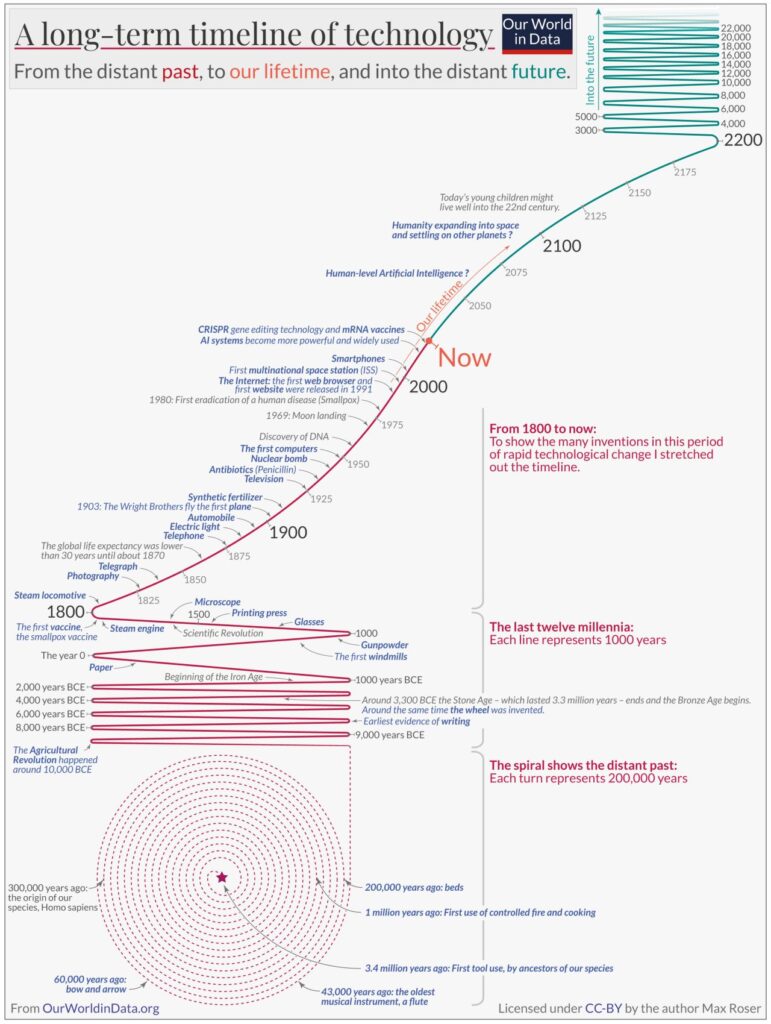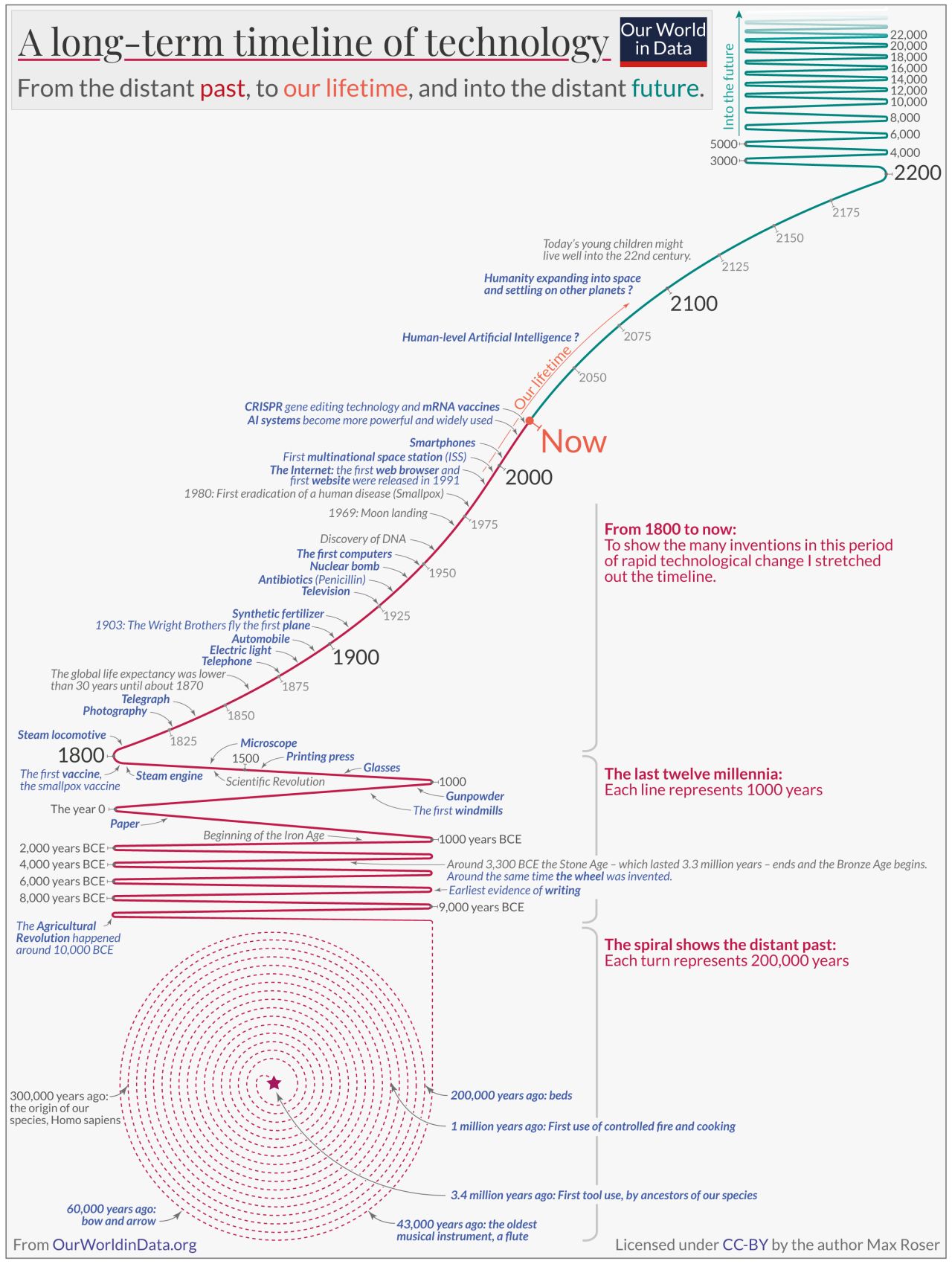
A couple of days ago, I stumbled on LinkedIn on this image showing a long-term timeline of technological development by Max Roser, founder of Our World in Data.
The graphic is impressively synthetic, and deals beautifully with exponential time scales, both prior and after the modern epoch.
But I am not convinced that the evolution of technology should be presented as a linear timeline. The automobile, for instance, is by no means a progression step, but a regression of spatial planning pushed by the car, fossil fuel and consumables industry (Ford, Shell, Exxon, Michelin, Tesla batteries…) that still blocks advances in public transport and sustainable planning. What cars have done to space for instance, is illustrated by the evolution of maps that I discuss in an older post.
For this graphic to be effective, the line should also show setbacks, and potential paths that we omitted to take. Technologies are also hardly isolable from the societal conditions that allow them to thrive (extractivism, data and financial concentration in the case of AI).
Further, as a friend of mine pointed out in a mail exchange: “it might be helpful to distinguish between different dimensions of progress, e.g. technological, political, economic or social. Progress in one dimension may lead to setbacks, new challenges or boosters in others, for instance, many technological progresses, such as a typewriter, lead to an increase in the workforce of women (e.g. the rise of the figure of the secretary since the end of the 19th c.) and thus more emancipation, or surveillance technology may increase the means to control people and thus less freedom (have a look at China).”
The line finally fails to mention sustainable technologies.
All in all, this graphic is a nice take, with very interesting graphical options, but in need of more reflection to avoid the ideology of technical determinism. This goes to all students and beyond: take care of esthetics, but beware of esthetic traps.
